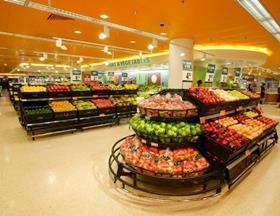
New organic labelling standards introduced by the Chinese government last month appear to be making little headway at a retail level, according to local media reports.
The new standards took effect from 1 July, and require produce sold as organic to be certified by one of the 15 authorised certification organisations in China, and include a unique 17-digit code that can be used to check the product’s origin online.
A report in the China Daily, however, found that more than a month and a half after the start date of the new regulations, Beijing supermarkets were still offering a wide range of produce improperly labelled as organic.
Some supermarkets offered a mix of certified organic produce with products labelled with very similar but unauthorised ‘organic’ labels, the China Daily reported.
“There are so many kinds of organic labels. It’s very hard to identify the authorised ones. And it’s very easy to take the wrong product as the labels all look the same to me,” one shopper told the paper.
Fake organic certification stickers are reportedly widely available in China, despite manufacturers and users facing a potential fine of Yn10,000-30,000 (US$1,572-4,715) per offence.
The new organic certifications are significantly more expensive than under the previous regulations, which only required one inspection of one produce variety per producer every three to five years. The new regulations require an inspection every year of a ‘wide range’ of produce lines per producer.
“The examination of one breed of vegetable costs at least Yn2,000 (US$314). If a company has 100 kinds of vegetables, which is pretty normal, it will spend more than Yn200,000 `US$31,400` con certification,” said Guo Chunmin from the China Organic Food Certification Centre.



